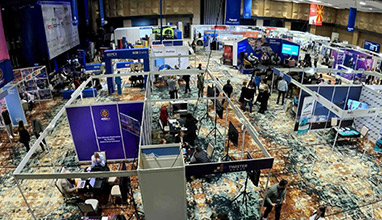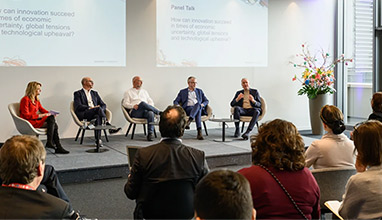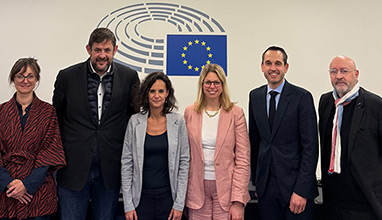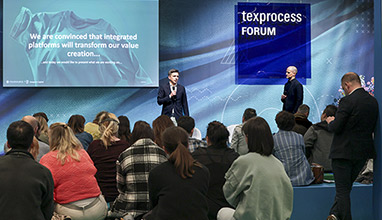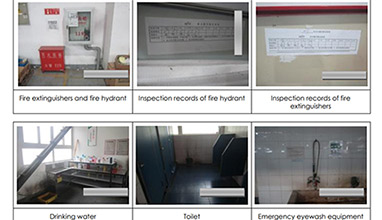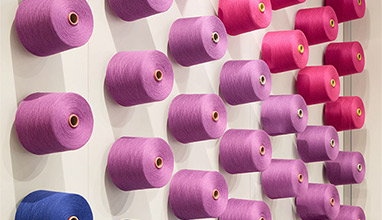FEA-VEE Project Brought Together 60 Participants from 6 Countries for a Study Visit in Spain
The first study visit of the ERASMUS+ FEA-VEE project was successfully held in Terrassa, Spain, with the Universitat Politècnica de Catalunya (UPC) as the host institution. This immersive experience brought together participants selected by the project’s partner entities: 60 participants from 6 European countries (Bulgaria, Greece; Germany, Romania, Spain and Sweden), all from the textile and fashion sectors. The visit had a strong focus on textile sustainability, innovation, and social impact.
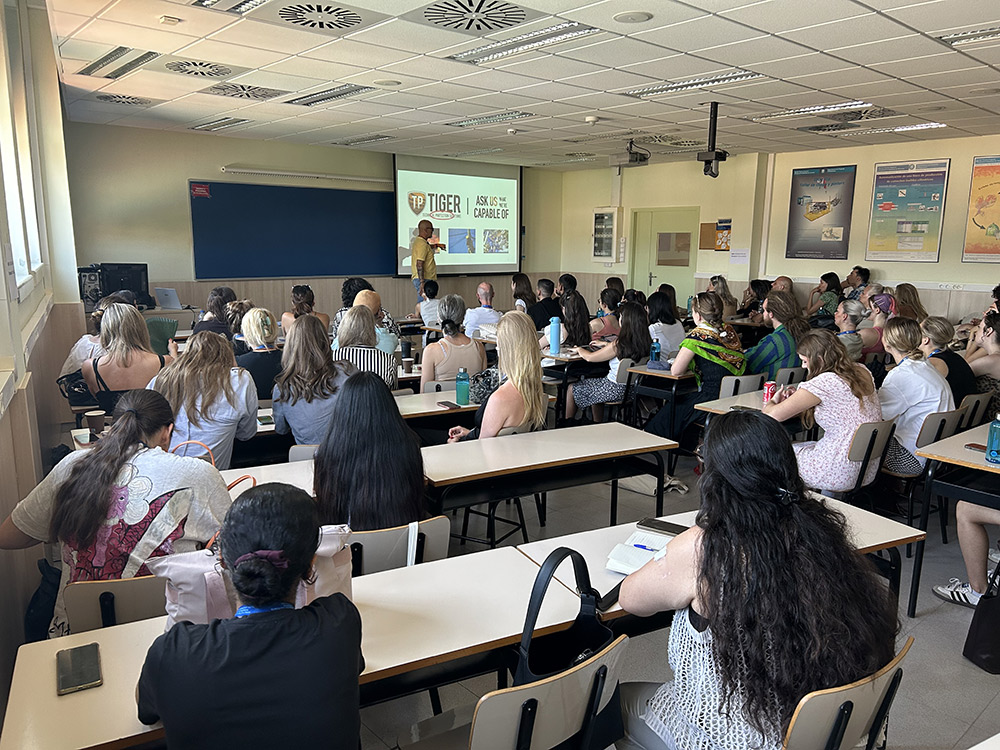
Presentation of the success case of the company Technitiger
The agenda combined academic sessions, visits, and hands-on activities. Participants explored current challenges in textile research and visited UPC’s textile engineering facilities. An Ecodesign Hackathon was organized as a key activity of the FEA-VEE project, aimed at fostering interdisciplinary collaboration and sustainable innovation.
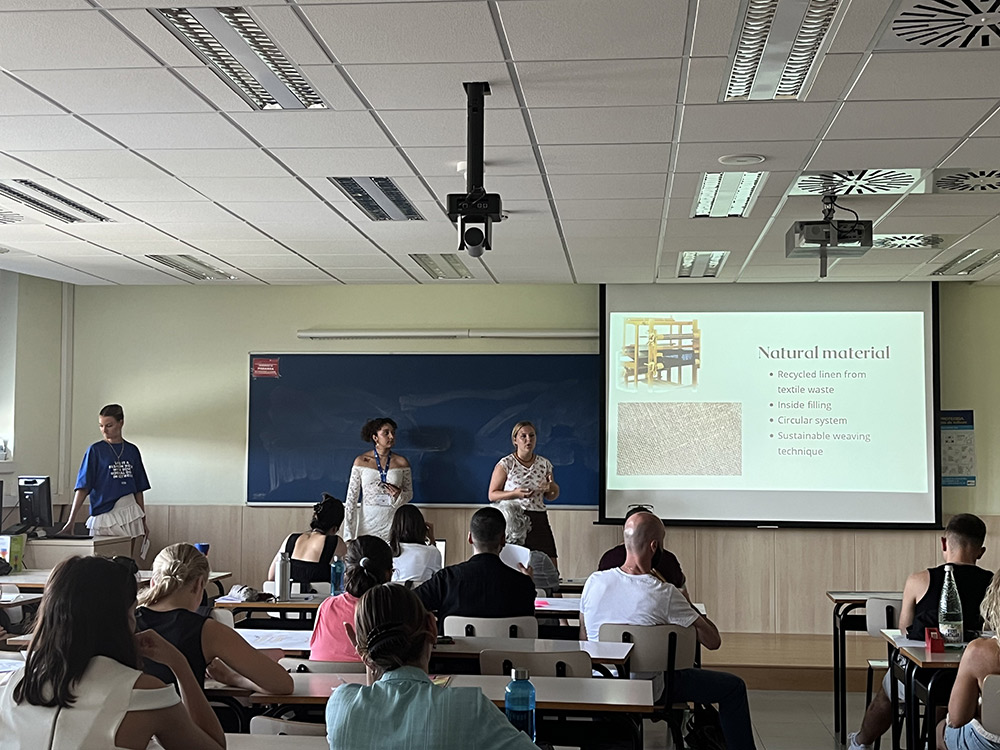
The visit included field trips to leading organizations such as Teixidors and Roba Amiga, which provided real-life examples of ethical production models and circular economy initiatives. In addition, a session with the CEO of the company Technitiger offered valuable business insights into innovation and entrepreneurship in the sector.
The programme also included cultural and educational activities, such as a “digitalization in textiles” master class and a visit to the Textile Museum and Documentation Centre, where participants got a session about the sustainability of fast fashion and took part in creative fashion illustration sessions.
The "Textile Digitalisation and Sustainability" learning session introduces how digital technologies are transforming the textile industry, with a strong emphasis on sustainability and the shift toward a circular economy. Participants explored innovations such as the use of biodegradable and recycled materials, the development of functional and high-performance textiles, and the adoption of smarter, more efficient manufacturing processes. Central to this transformation is Industry 4.0, which refers to the full digitalisation of value chains through technologies like sensors, data analytics, and automation. These tools enable more intelligent planning, production, and decision-making, helping companies reduce environmental impact, improve efficiency, and better meet customer demands through customisation and flexibility.
The session explores key Industry 4.0 technologies applied to textiles, including the
Internet of Things (IoT) for real-time monitoring, Big Data for process optimisation, and cloud
computing for remote data management. Cybersecurity is also addressed as a vital element for
protecting sensitive business and customer information.
Participants also learnt about the use of augmented and virtual reality (AR/VR) for virtual
garment fitting and 3D design, as well as additive manufacturing, which opens new possibilities
for textile customisation. The importance of system integration, artificial intelligence, and
autonomous systems was highlighted for streamlining production and reducing reliance on
manual labour.
Finally, the session covered practical applications such as stock management and traceability using QR codes and RFID, simulation and digital twins for virtual testing and training, and blockchain for ensuring transparency in the fashion supply chain. Overall, the session emphasised that embracing Industry 4.0 is not just a technological upgrade, but a strategic move toward a more sustainable, competitive, and future-ready textile and fashion industry.
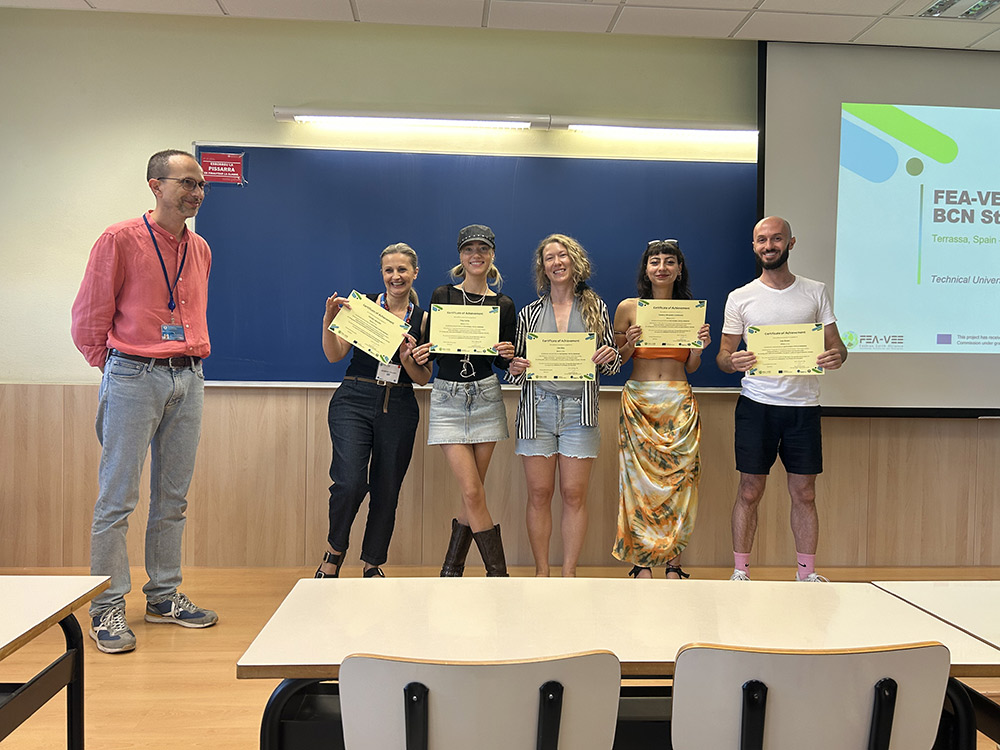
Red dot team winner of the Hackathon
The week concluded with a Hackathon focused on eco design including the final presentations, where teams showcased their proposals to a jury board. The Hackathon successfully brought together diverse talent in a collaborative environment, generating innovative proposals for the sustainable redesign of textile products. The team formation methodology—based on geographical diversity and balanced skill sets— proved effective in fostering creativity and mutual learning in textile and fashion eco-design. The event highlighted the creativity, teamwork, and practical application of the knowledge acquired, reinforcing the project’s goal of promoting vocational excellence and sustainable innovation in the fashion and textile sectors.
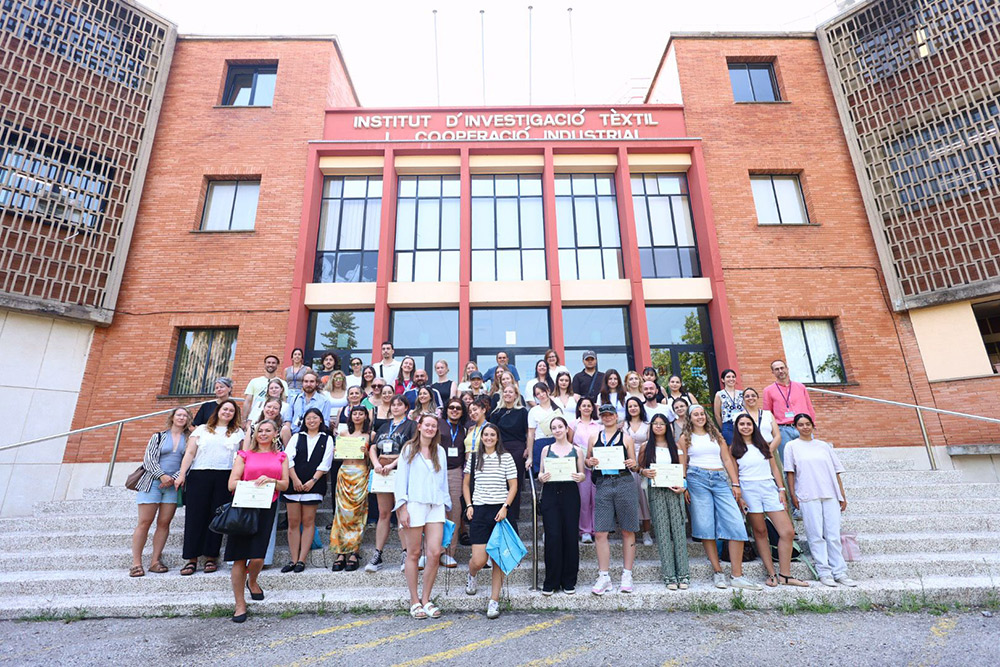
Study Visit Participants in front of the Textile Research Institute of the UPC (INTEXTER)
Hits: 15842 | Leave a comment




